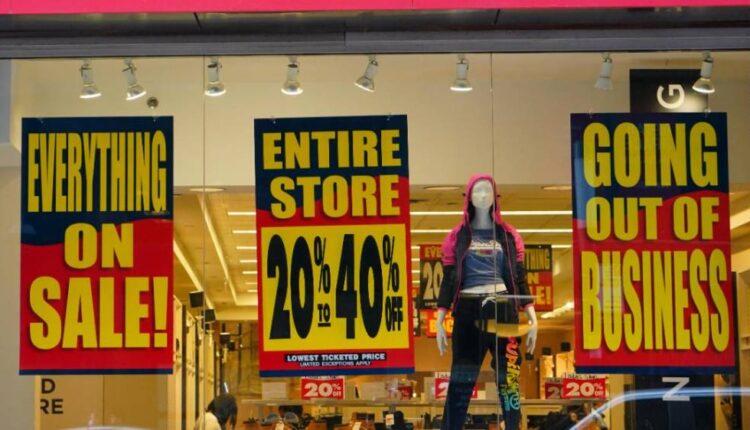A version of this story first appeared in CNN Business’ Before the Bell newsletter. Not a subscriber? You can sign up right here.
London (CNN Business)At first glance, the number of people buying pricy leather bags may not seem like a helpful bellwether for the health of the global economy.
But solid earnings at LVMH, the fashion conglomerate that owns brands like Louis Vuitton, Fendi and Dior, are a good indicator that consumers are getting comfortable spending on big-ticket items again.What’s happening: LMVH reported Thursday that its fashion and leather goods division returned to growth last quarter, with revenue rising 12% compared to the same period last year. Shares are up more than 6% in Paris.
The coming months still look difficult. Sales in China — the only major economy expected to grow this year — have experienced a rebound, but can’t carry the entire business. Sales of luxury goods are also closely tied to international tourism, which LVMH Chief Financial Officer Jean Jacques Guiony said is poised to remain muted until there’s a Covid-19 vaccine.”I am not particularly hopeful that we’ll see a lot of tourist inflows before that,” Guiony told analysts on a conference call.

IMF cuts its global economic forecasts for 2021 and warns of 'long, uneven' recoveryRead MoreA strong July through September, however, is encouraging, especially heading into the holiday season.Jeweler Tiffany — which LVMH wanted to take over before the pandemic hit — also reported this week that sales in mainland China were “extremely strong” and “positive sales trends are continuing in October.”More data: It’s not luxury, but Amazon said that its Prime Day sale earlier this week was its most successful to date. Amazon declined to provide a sales figure, but some analysts had predicted it would make as much as $10 billion. (In a press release, however, the company focused on how much money the event generated for small businesses. Any link to growing antitrust scrutiny?)Big picture: Consumption drives economies like the United States, so it’s crucial that customers keep spending even as the trajectory of the pandemic remains uncertain heading into the winter.LVMH and Tiffany said that activity in the United States was improving. With consumer spending still below where it was in January, that must continue.Up next: Investors will be keeping close watch on US retail sales data for September out Friday. Economists surveyed by Reuters expect sales to tick up 0.7% from the previous month. That would mean the rate of growth has been roughly flat for the past two months.
Why the ‘MAGA’ ETF is trailing the market
With less than three weeks until Election Day, President Donald Trump is behind former Vice President Joe Biden in the polls. And an ETF whose ticker is the acronym for Trump’s famous campaign slogan is lagging the market, too.The Point Bridge GOP Stock Tracker ETF, which trades under the symbol MAGA, is down 8% this year — in sharp contrast to the benchmark S&P 500, which is up more than 7%, my CNN Business colleague Paul R. La Monica reports.Trump isn’t involved in the fund. And despite the cheeky ticker symbol, it isn’t designed to track Trump-friendly stocks or industries like oil giants, big banks and defense contractors.How it works: Point Bridge — the investment firm that manages an index the fund is based on — invests in 150 S&P 500 companies that have the highest number of workers or political action committees that have donated to Republicans in the past two election cycles.The MAGA ETF’s holdings are mostly equally weighted, with no individual stock accounting for more than 1% of its assets. Among the top 10 stocks in the ETF are home builder NVR, FedEx, Whirlpool and General Electric.So why is the MAGA fund doing so poorly?Hal Lambert, founder of Point Bridge Capital, points out that it doesn’t include many tech stocks, given that Silicon Valley firms tend to support more liberal causes and candidates.That means the fund has missed out on the Big Tech rally this year, while the S&P 500’s performance has been juiced by strong gains from Apple, Amazon, Microsoft, Google owner Alphabet, Facebook and Netflix. None are in the MAGA ETF.It’s that simple: “Tech has driven the market,” Lambert told CNN Business.
This could cost reeling UK economy $25 billion next year
UK Prime Minister Boris Johnson has an expensive choice ahead.The British economy has been pummeled by the pandemic. Now, after a meeting of EU leaders decided that not enough progress has been made in talks on a new trade deal with the United Kingdom, Johnson faces a difficult choice: Does he keep discussions going past a self-imposed deadline, or walk away?Both roads lead to a tough 2021 for Britain as the country battles the twin shocks of coronavirus and Brexit. But failing to secure an agreement with the United Kingdom’s biggest export market would amplify the pain.See here: Walking away empty handed would disrupt businesses when the transition period ends later this year — shaving more than $25 billion off the UK economy in 2021 compared to a scenario where a limited free trade deal is agreed, according to a CNN Business analysis based on forecasts from Citi and the Institute for Fiscal Studies.That would put the country even further behind on its efforts to recover from the historic shock triggered by the pandemic.”The combination of Covid-19 and the exit from the EU single market makes the UK outlook exceptionally uncertain,” Laurence Boone, chief economist at the Organization for Economic Cooperation and Development, said in a report this week. “Actions taken to address the pandemic and decisions made on future trading relationships will have a lasting impact on the United Kingdom’s economic trajectory for years to come.”
Up next
BNY Mellon, Ally Financial and State Street report results before US markets open. Also today:
- US retail sales for September post at 8:30 a.m. ET. Industrial production data follows at 9:15 a.m. ET.
- The University of Michigan’s survey of consumer sentiment for October arrives at 10 a.m. ET.
Coming next week: Earnings season continues with IBM, Netflix, Tesla, Verizon and Intel.
Source: edition.cnn.com

